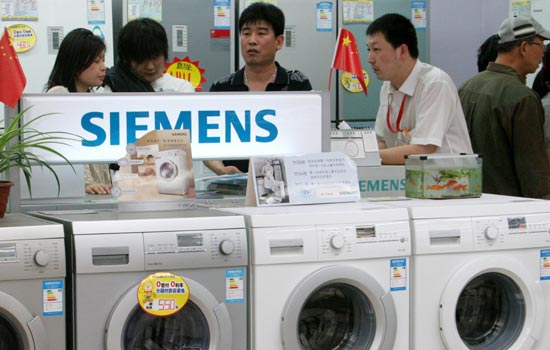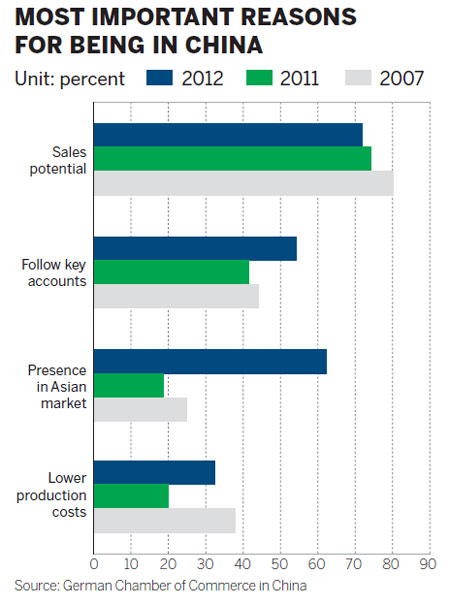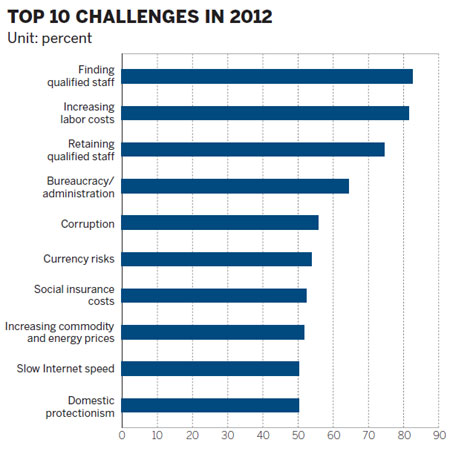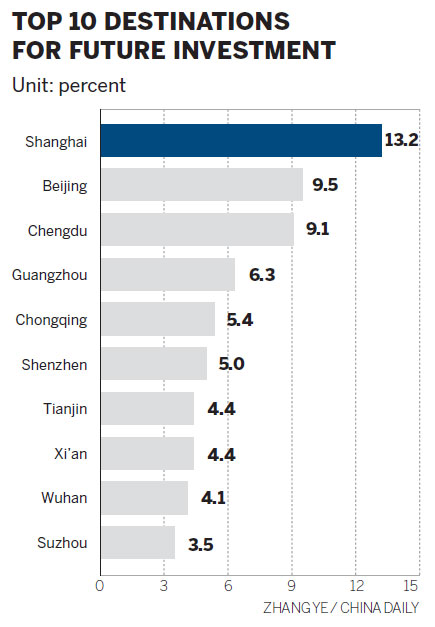
|
 |
|
Customers at a Siemens washing machine section in a Beijing store. German companies try to open more channels for direct sales to compete with Chinese rivals. [Photo/China Daily] |
Companies set sights on smaller cities in central and western China
Facing tougher competition from local automotive suppliers in China, German companies are keen to open more channels for direct sales, according to the German Chamber of Commerce in China.
A survey conducted by the chamber showed that 75 percent of German companies in China feel threatened by local competitors, especially in the automotive manufacturing industry, 10 percent more than last year.
"Three out of four companies are facing challenges from Chinese competitors, which have access to much lower labor costs and more direct channels for selling products to local buyers," said Titus von dem Bongart, chairman of Shanghai German Chamber of Commerce.
Experts suggested that foreign companies should work with more local manufacturers to reduce the cost of automotive components.
"The costs of producing high-quality components at local factories are lower for foreign companies," said Jia Xinguang, an independent auto analyst in Beijing.
Jia added that China's booming car industry, with its enhanced product quality, would bring more challenges to German car manufacturers.
Despite its challenging conditions, China remains the most important market worldwide for German companies.
China is one of the three major markets worldwide for more than two-thirds of German automotive and mechanical engineering companies.
"The majority of German firms are looking forward to higher sales and increased profits, and want to make further investments in China," said Daniel Berger, principal of EAC-Euro Asia Consulting.
Von dem Bongart added that after a difficult year in 2011, German companies are now slightly more optimistic regarding the development of energy and raw material prices.
Finding qualified staff and increased labor costs remain the top two challenges for German companies in China.
Over 80 percent of the more than 300 surveyed companies said it was quite difficult to find qualified staff in China and retain them with reasonable salaries.
"Having similar problems with employment as Chinese companies, the German companies also found out it is quite hard to retain qualified professionals for more than three years," said Von dem Bongart.
Although the most important markets for German companies in China are the Yangtze and Pearl river deltas, more firms predicted that their future key market would be second- and third-tier cities in central and western China.
"We've seen the potential market in second- and third-tier cities, with more middle-class customers, and hopefully we can expand the network with local manufacturers and buyers," said Berger from EAC-Euro Asia Consulting.
"For long-term success, most German companies view improving their distribution efficiency as essential by selling premium products to transparent customer groups directly," said Berger.
yuran@chinadaily.com.cn





 Washington to remain focused on Asia-Pacific
Washington to remain focused on Asia-Pacific RQFII target blue chips amid bear market
RQFII target blue chips amid bear market Australian recall for top two exporters
Australian recall for top two exporters China fears new car restrictions
China fears new car restrictions